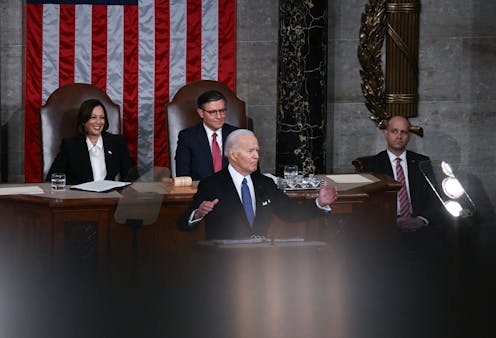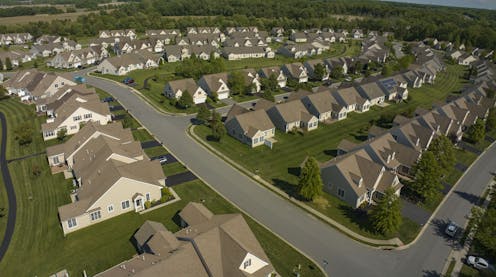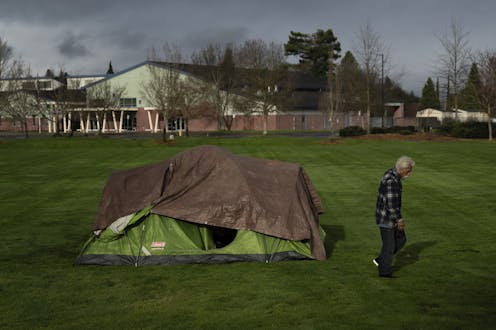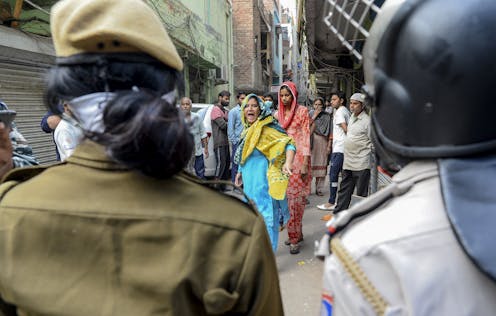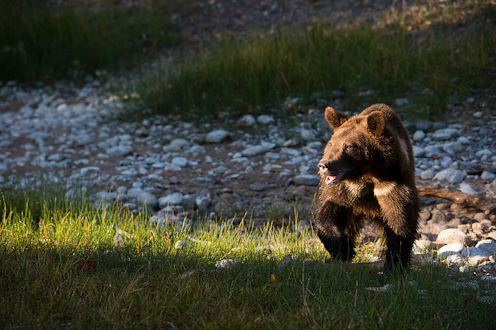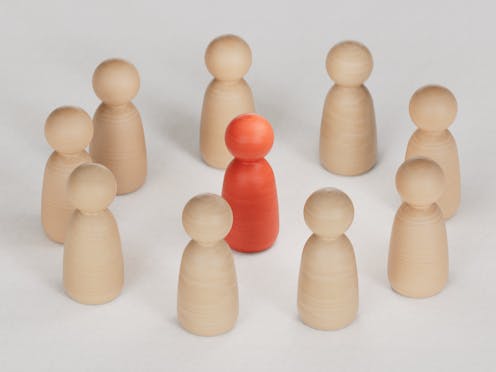Taiwan's Great Choosing Day
 Young supporters of newly-elected independent Taipei Mayor Ko Wen-je celebrate his victory in Taipei, Saturday 29th November 2014CNA
Young supporters of newly-elected independent Taipei Mayor Ko Wen-je celebrate his victory in Taipei, Saturday 29th November 2014CNA
This is the final contribution to a five-part series of field notes covering the background dynamics and global significance of last Saturday’s fiercely fought ‘nine-in-one’ elections in Taiwan.
The great choosing day in Taiwan is over and the results, to put things mildly, have flung a whopping majority of its citizens into a state of surprised euphoria.
The unexpected outcome is of historic importance. For the first time since the lifting of martial law, the grip of the ruling KMT party on local government has been fully broken; multi-party democracy and the principle that government power should periodically be rotated have finally taken root throughout Taiwan. The standard bearer of the military past has suffered a country-wide rout. The KMT managed to capture only one of the six big cities. Its overall vote plummeted to 41 percent (compared with 48% for the Democratic Progressive Party and a sizeable 9% for closely-aligned independents). New Taipei City Mayor Eric Chu, whom many regarded as a strong KMT candidate for the 2016 presidential election, was re-elected, but merely by the skin of his teeth. Premier Jiang Yi-huah and KMT secretary-general Tseng Tung-chuan both resigned. Then came (breaking news) the most highly-prized scalp: President Ma Ying-jeou announced his resignation as KMT chairman, his reputation badly soiled by rumours that he cannot last – that he will be forced from the presidential palace before his term expires in May 2016.
Mainstream media coverage has understandably played up the landslide defeat of the KMT, but these ‘nine-in-one’ elections have a richer significance, not just for Taiwan but for the wider region. On the ground as an election observer, I was struck by the way these elections have shown how the resilience of Taiwan’s uniquely post-sovereign democratic polity does not stem ultimately from economic growth, or gun barrels (Mao Zedong), or from the cool charm of government ‘soft power’ advertising. The resilience of its polity has deeper taproots: Taiwanese democracy rests ultimately on its citizens’ belief in democracy.
Last weekend’s elections serve as a reminder that a political order is ultimately propped up by people’s attachment to it. Potestas in populo is the classic Roman summary of this equation. The Chinese version might be: water that floats boats can overturn them as well (shuǐ kě zài zhōu, yì kě fù zhōu). In other words, what the KMT party machine has learned from this election is that command and obedience are tricky ingredients of any given political order, which always rests upon a silent or unwritten contract (mo xŭ) between governors and governed. Power over others functionally requires that citizens feel comfortable with those who rule them. The inverse is equally true: the powerful are only powerful insofar as they win people’s trust and support.
 Chinese Nationalist Party (KMT) Taipei mayoral candidate Sean Lien, centre, bows after conceding defeat, 30 November 2014Fang Pin-chao/Taipei Times
Chinese Nationalist Party (KMT) Taipei mayoral candidate Sean Lien, centre, bows after conceding defeat, 30 November 2014Fang Pin-chao/Taipei Times
There’s a second reason why the election results are much more than a re-aligning local election, to use a hackneyed phrase favoured by political scientists. Impressive was the way the losers left office gracefully, sometimes tearfully, but usually sporting a smile. On the great choosing day, 60,000 police officers were mobilised throughout the country. The presidential palace was wrapped in rolls of barbed wire, metal barricades and troops armed with machine guns. There was a similarly heavy police presence outside and inside the Central Election Commission, where I watched at close range the tallying of the votes. These security precautions proved quite unnecessary, simply because those who run for office in Taiwan have embraced in quick time a principle that took old Europe centuries to learn: elected office is not the private property of the elected. Those lucky enough to be elected understand that their victory is only temporary. When their time is up, they quit, with a farewell wave, not a clenched fist.
Sean Lien, the KMT loser of the battle to win the coveted office of Taipei mayor, demonstrated just how far Taiwan has come in this respect. Several hours after the polls closed, flanked by his wife and campaign staff, he arrived at campaign headquarters. Supporters applauded, then fell silent, to hear his departing words. Lien bowed slowly, not just once, but six times, before delivering a short speech. It included the usual stuff that defeated candidates say. ‘Although we lost the battle, we did not lose the war’, he said. ‘There are more formidable challenges ahead of us’, he added. ‘We have to continue to seek support for the values and ideals we believe in.’ But then came the heartfelt apology, the moment of humility when the big man fell to his knees, to admit he lost. ‘I am really sorry for failing to meet your expectations’, he told his wet-eyed supporters. ‘I take responsibility for the defeat. It’s because I didn’t work hard enough to win, and I apologise’.
 At a Taipei polling station, a KMT supporter watching the count, spellbound by bad news, 29 November 2014John Keane
At a Taipei polling station, a KMT supporter watching the count, spellbound by bad news, 29 November 2014John Keane
A third striking feature of the fiercely-fought elections was their high level of integrity, certainly when measured by global standards. Citizens showed remarkable self-discipline and respect for the rules of the game. The tens of thousands of young people who travelled by bus back to their home constituencies, courtesy of civil society bodies such as the Taiwan Citizens’ Union (TCU), observed the strict election rules by not displaying party banners, blowing whistles, handing out leaflets or shouting out slogans. At the Taipei polling station I monitored, an elderly KMT supporter who’d gathered to witness the counting of ballot papers seemed spellbound by the incoming bad news; he was incredulous, not riotous. Throughout the country, winners were joyous. Losers were gracious. Even President Ma Yoing-jeou sounded chastened. ‘Every ballot represents the love that citizens have for Taiwan’, he said. ‘The poll results have reminded us that those in power must also be humble listeners.’
 Counting ballots before an assembled public, Taipei, 29 November 2014John Keane
Counting ballots before an assembled public, Taipei, 29 November 2014John Keane
By local election standards, turnout was high (67.5 per cent) and passions ran deep, yet voting irregularities were minor, almost comical in their banality. In the south-western city of Pingtung, a 22-year-old university student was cautioned after tearing up his ballot paper, reportedly because he couldn’t decide which way to vote. Further north, in Greater Taichung, another citizen cast his vote for mayor then tore up the ballot paper for the city councillor and borough warden. He later told polling station staff that he’d done so because he wasn’t much interested in casting his vote for them, and just needed to know where to place his torn-up ballot paper. And in the town of Puli, not far from beautiful Sun Moon Lake, another honest citizen was cautioned by polling staff after they heard the sounds of camera clicks. He apologised, offering the explanation that he’d just wanted to record for posterity the largest and most important local elections in Taiwan’s history.
 Women officials counting ballots cast for mayor of Taipei, 29 November 2014John Keane
Women officials counting ballots cast for mayor of Taipei, 29 November 2014John Keane
Technically in breach of electoral laws that strictly prohibit the use of recording devices inside polling stations, the good citizen with a sense of history had a point: these elections demonstrated to the wider region, above all to Beijing, that Taiwan has come of age, that in east Asia free and fair elections and open public monitoring of power are sustainable practices. These elections proved that citizens and their chosen representatives can shake off the old habits of one-party rule, that a vibrant monitory democracy is not just possible but is a superior way of removing slovenly, unpopular or corrupt governments.
The Taiwan result has not been lost on the citizens of Hong Kong. Thousands there are being punished with batons, pepper spray, tear gas and arrest simply for demanding publicly what Taiwan already has managed to achieve. The KMT rout is intimately bound up with the political destiny of China. It is a small but significant victory for the local Sunflower movement that earlier this year rang the alarm about growing Chinese Communist Party influence in Taiwan. The huge vote against the KMT is also a message of solidarity with the citizens of Hong Kong. It is a thank you gift to them as well: recognition of the way the pro-democracy protests of the umbrella movement affected the mood of many Taiwanese citizens, persuading them of the precious importance of freedom of communication and free periodic elections as weapons for refusing and controlling manipulative arbitrary power.
 President Ma Ying-jeou addressing a Chinese Nationalist Party (KMT) Central Standing Committee meeting, Taipei, July 5, 2014CNA
President Ma Ying-jeou addressing a Chinese Nationalist Party (KMT) Central Standing Committee meeting, Taipei, July 5, 2014CNA
The deepest significance of the KMT rout is that it has flung Beijing’s silent takeover strategy into crisis. The great choosing day in Taiwan has effectively turned Ma Ying-jeou into a lame duck president whose entire China integration policy has been holed by the reef of public opinion. Since 2008, under his leadership, nearly two dozen separate trade deals have been agreed with China. Beijing, supposing markets rather than guns are the best weapon for taming Taiwan, has funded ‘contact people’ from Taiwan’s various city and county governments to visit China, to attend workshops for which they received direct or indirect mainland government subsidies. Academics, students, doctors, war veterans and local leaders have been targeted by Beijing. Taiwan’s Village and Township Alliance, founded in late 2011, has also been heavily lobbied by Chinese officials. There has been much talk from Beijing of the need for ‘free economic pilot zones’ to relax restrictions on the flow of Chinese goods and services and the entry of specialised Chinese workers into Taiwan. Taiwanese businesses operating in China have reciprocated. Through such bodies as the Association of Taiwan Investment Enterprises on the Mainland (ATIEM), their members have become fifth columnists of CCP rule. They want more flights, more Chinese tourists, more Chinese investment in Taiwan. Their ‘peaceful unification’ philosophy is simple: carrots from China are better than sticks.
Such market thinking and business strategy are designed to give China a footing on Taiwan’s political ladder, to persuade Taiwan’s citizens that Beijing is a friend with money, not a foe with guns. The strategy was supposed to culminate in a high-level meeting between Xi Jinping and Ma Ying-jeou, but that option has now been decisively vetoed by a thumping majority of voters. These elections have sent a clear message to the CCP rulers that in matters of political emotion Taiwan is now lost to Beijing. The great choosing day turned out to be a celebration of free elections and monitory democracy. It was a reminder to Beijing that geopolitical realities are changing, that things are going badly for Chinese power on the fringes of its polity, that the grip of the CCP has been radically weakened on four fronts: Xinjiang, Tibet, Hong Kong and now Taiwan.
 Chinese President Xi Jinping addressing a CCP foreign affairs committee meeting, Beijing, 28/29 November 2014Xinhua/Ma Zhancheng
Chinese President Xi Jinping addressing a CCP foreign affairs committee meeting, Beijing, 28/29 November 2014Xinhua/Ma Zhancheng
How the Chinese rulers react to these election results is the critical question. Unfortunately, their first responses are not encouraging. ‘We should increase China’s soft power, give a good Chinese narrative, and better communicate China’s message to the world’, Xi Jinping told a high-level Communist Party meeting on foreign affairs on the eve of the Taiwan elections. Defending ‘socialism with distinctive Chinese features’ (code words for the leading role of the Party), Xi said China had to keep abreast of regional and global developments and to cultivate ‘deep understanding of the underlying trend of the times’. He went on to say that just as China’s dependence on the world and its involvement in international affairs are deepening, so is the world’s dependence on China. In global affairs, China is coming of age. That is why, he concluded, China would strive to ‘act in good faith, value friendship, and champion and uphold justice’. It stands for ‘the principle of non-interference in other countries' internal affairs’. China respects ‘the independent choice of development path and social system by people of other countries’ and everywhere favours the ‘peaceful resolution of differences and disputes between countries through dialogue and consultation’.
Unfortunately, Taiwan received no mention by name during Xi Jinping’s address. Its silent dismissal is normal, for what happens in Taipei is always considered a domestic matter in Beijing. ‘We should firmly uphold China’s territorial sovereignty, maritime rights and interests and national unity’, Xi said in his address. When decoded, this sentence means: ‘Do not have illusions, people of the province of Taiwan. Your talk of autonomy is misguided. Do not imagine you can decide things for yourselves. You are part of a greater China, and together we shall prevail. Recognise your destiny. Embrace national unity. Acknowledge our common territorial sovereignty. Work for unification with the motherland. Support the CCP, the true representative of the whole people of China.’
The trouble is that Taiwanese voters have just resolutely refused this vision. And so a new spectre haunts China: intransigence from the centre, tougher resistance from the margins. Will the CCP deal with this contradiction by altering its policies towards Taiwan? That is most unlikely. Equally improbable is the willingness of the citizens of Taiwan to trade in their democracy – to buckle under mounting pressure from Beijing. Something will surely have to give for, to quote Chairman Mao Zedong, the time has come for the correct handling of contradictions among the people, using the democratic method, of course.
John Keane does not work for, consult to, own shares in or receive funding from any company or organisation that would benefit from this article, and has no relevant affiliations.
Read more http://theconversation.com/taiwans-great-choosing-day-34934




